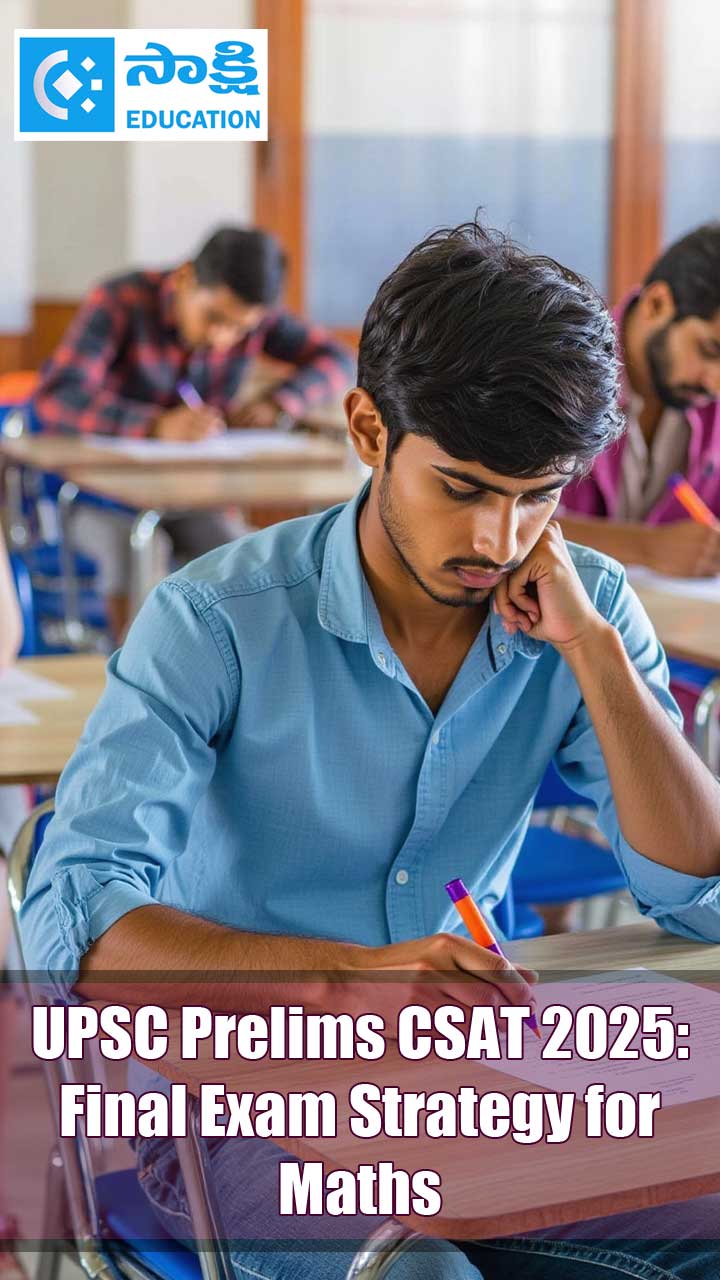RIC: Russia-India-China
Sakshi Education
I. Introduction:
1. Requirements of a Trilateral Relationship:
Any trilateral formation must look at strengthening of mutual relations of the constituents.
The areas of mutual concerns must be identified and long-term strategies devised to strengthen cooperation.
Incremental Approach:
Instead of an alliance framework aimed at countering the US influence, an incremental approach which has been adopted by India i.e. cooperation on counter-terrorism and jointly developing the energy resources of Central Asian republics is a more feasible approach, according to analysts.
2. Need for a Trilateral Relationship between India, China and Russia:
The US presence in Central Asia and Pakistan has renewed the debate on the need for a multi-polar international system in the post-Cold War era. India, Russia and China are concerned about the strategic implications of the US presence in the region for their respective interests in Central and South Asia. A trilateral relationship between the three sides is seen from this angle by analysts.
3. Factors Favouring the Formation of a Trilateral Relationship between India, China and Russia:
A. Cooperation Against Terrorism and Development of Energy Resources:
India and Russia have agreed on the need to include China in a discussion on the Joint development of energy resources and combating terrorism. All three countries are facing threats from Islamic extremists- China in the Xinjiang province, Russia in Chechnya and India in Jammu and Kashmir.
B. Need for a Multi-Polar International System:
India, Russia and China prefer a multi-polar international system to counter the growing influence of the US and the role of NATO after the collapse of the Soviet Union, according to analysts. This is possible if the complementary poles pursue political and strategic policies that are not at variance.
C. Converging Strategic Interests of India and Russia:
Analysts point out that India and Russia have converging strategic interests and have a long-standing military relationship. Russia endorses India’s position on cross-border terrorism from Pakistan. There is no mutual threat perception on the nuclear issue.
D. Economic Cooperation:
Analysts point out that both India and China are keen on economic development and modernisation. Therefore trilateral cooperation between India, Russia and China could yield economic benefits as well.
4. Factors Impinging the Formation of a Trilateral Relationship between India, China and Russia:
A. Problems in Sino-Indian Relations:
China’s special relationship with Pakistan and its supply of nuclear and missile technology to Pakistan. Mutual distrust generated by the unresolved boundary question. China looks towards the growing Indo-US relationship with apprehension and perceives it in terms of an encirclement of China. India feels that by arming Pakistan, China is threatening its security. Sino-Indian bilateral relations have improved recently.
India and China have a declared policy of no-first-use of nuclear weapons which could be transformed into a formal understanding on a mutually non-threatening nuclear posture.
B. Bilateral Relationships with the US:
Analysts point out that the bilateral relations of India, Russia and China with the US is also a factor that impinges the formation of a trilateral understanding between these countries.
5. India's Views on Trilateral Cooperation:
Trilateral Cooperation would Contribute to Peace and Development in the Region and the World Trilateral cooperation is not a grouping directed at any nation or bloc.
6. China's Views on Trilateral Cooperation:
The three countries can join hands in fields like trade, energy, science and technology to broaden strategic relations.
The forum of the Foreign Ministers of the three countries could be useful to chalk out a concrete roadmap.
7. Russia's Views on Trilateral Cooperation:
The three countries uphold the concept of multipolarity.
The synergy between the three countries could be utilised to promote their domestic economic development.
8. First Trilateral Stand-Alone Meeting:
The Foreign Ministers of India, Russia and China held their first stand-alone trilateral meeting in Vladivostok (Russia) on June 2, 2005. The three Foreign Ministers had been meeting informally on the sidelines of various international forums.
II. RIC Foreign Ministers Meeting (Yekaterinburg (Russia) May 15, 2008):
1. Fourth Standalone Meeting of RIC Preceded BRIC Meeting:
On May 15, 2008 a trilateral meeting of Russia, India, China (RIC) was held in Yekaterinburg (Russia). The RIC meeting preceded the Brazil, Russia, India, China (BRIC) meeting at the same place on May 16, 2008. This was the fourth standalone meeting of RIC at the Foreign Ministers Level.
2. Joint Communiqué:
Reaffirmed Commonality of Views on the Global Situation:
The Joint Communiqué adopted at the trilateral meeting of the RIC Foreign Ministers reaffirmed the commonality in their views on the global situation. For the first time coordinated positions were set out on Kosovo, Iran, Afghanistan and the Asia-Pacific region. India displayed a greater readiness to go along with other RIC partners on these issues.
Call for Settling Kosovo's Independence in Accordance with Norms of International Law:
India, for the first time joined Russia and China is stating in the RIC Communiqué that the unilateral declaration of independence of Kosovo was contrary to the UN Security Council Resolution 1244. The Communiqué called for settling the Kosovo issue in accordance with the norms of international law and on the basis of an agreement and through negotiations between Serbia and Kosovo.
Call for a Political and Diplomatic Settlement of Iran's Nuclear Problem Through Negotiations:
The RIC Communiqué called for a political and diplomatic settlement of Iran's nuclear programme problem through negotiations. India's External Affairs Minister Pranab Mukherjee stated that India supported Iran's right to peaceful uses of nuclear energy provided it fulfilled its international obligations that all outstanding issues should be resolved through the IAEA and that confrontation and destabilisation in the region had adverse effects on the situation.
Russia and China Welcomed India's Aspirations for Playing an Enhanced role as an Observer in SCO:
Russia and China welcomed India's aspirations for playing an enhanced role as an observer in the Shanghai Cooperation Organisation (SCO). India's revived interest in the regional security body, which unites Russia, China and four Central Asian States, was also indicated.
Common Desire to Expand Multilateral Cooperation with the Central Asian States:
The RIC Communiqué reaffirmed a common desire to expand multilateral cooperation with the Central Asian States. The three countries agreed to identify various forms of trilateral interaction in the region.
Deepening Dialogue and Cooperation between the RIC Countries:
The Communiqué vowed to actively deepen dialogue and interaction between the three countries.
Call for Expeditious Finalisation of the Comprehensive Convention on International Terrorism:
Russia and China supported India in calling for expeditious finalisation of the Comprehensive Convention on International Terrorism, submitted at the UN by India.
Commitment to Further Strengthen Cooperation to Combat Terrorism:
The three Foreign Ministers reaffirmed their commitment to further strengthen cooperation among their countries to combat terrorism.
3. India would host the next meeting of the RIC.
4. Significance of the RIC Meeting:
Display of Enhanced Solidarity on International Issues Indicates the Trilateral Dialogue Acquiring Strategic Dimension:
Analysts point out that at the RIC Foreign Ministers meeting, Russia, India and China displayed enhanced solidarity on a range of international issues indicating that their trilateral dialogue may be acquiring a strategic dimension.
RIC Format a Unique Mechanism for Strengthening Cooperation:
India’s External Affairs Minister Pranab Mukherjee described the RIC format as a unique mechanism for strengthening cooperation. He pointed out that the RIC sent a message to the world that the three leading economies having common views on regional and global issue was of utmost importance and has its impact on the overall international situation.
India Praised RIC for Extending Its Practical Cooperation to Trade, Technology and Disaster Management:
India’s External Affairs Minister Pranab Mukherjee praised RIC for extending its practical cooperation to trade, technology, disaster management, relief, health and medicine, which would be highly beneficial to large sections of their populations.
Published date : 02 Oct 2009 02:00PM













